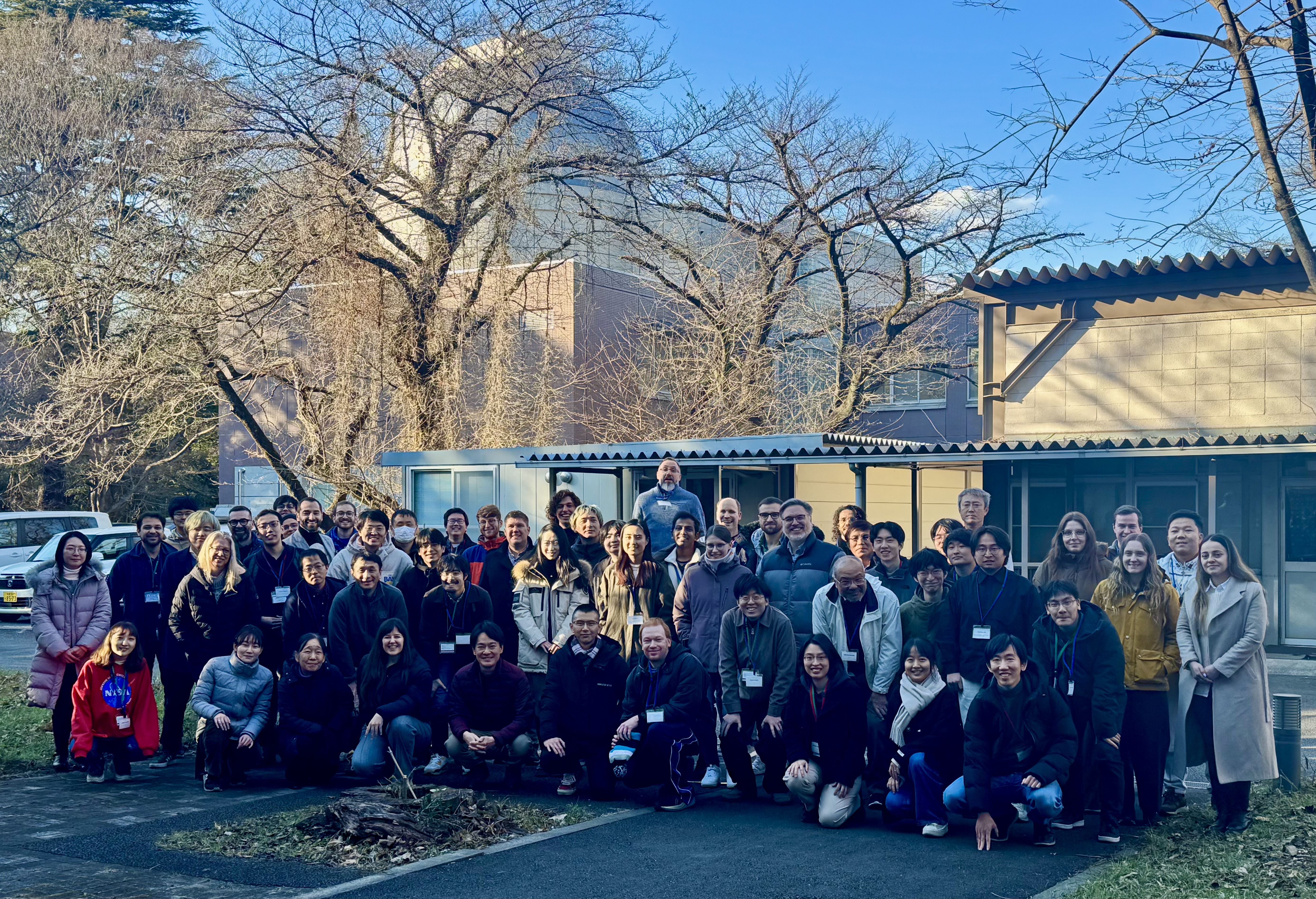Research on planet formation involves various approaches, including explorations of small solar system bodies, observations of protoplanetary disks, dust experiments, simulations, and theoretical studies. One of the primary objectives in this field is to develop a comprehensive theory that explains how kilometer-sized planetesimals form from micrometer-sized dust grains, drawing upon findings from these diverse research methods.
This workshop will focus on the concept of pebbles, which play a crucial role in the planet formation process. Pebbles — typically defined as solids ranging from millimeter to centimeter in size — are intermediate building blocks in planet formation, though their definition varies depending on the context. Assuming pebbles has led to theoretical advances in mechanisms such as streaming instability and pebble accretion, which promote the formation and growth of planetesimals. Additionally, pebbles have been linked to barriers against dust growth, such as the bouncing barrier. Furthermore, observations of protoplanetary disks have revealed the size distribution and porosity of solids, while the strength and thermal conductivity of comets obtained by the Rosetta mission suggest the accumulation of pebbles due to disk instabilities. However, inconsistencies have been pointed out between pebble formation and theories of dust growth.
This workshop aims to revisit and refine our understanding of solid materials implicated in planet formation, particularly in light of findings from solar system explorations and protoplanetary disk observations. We aim to reevaluate the definition and role of pebbles in the broader context of planet formation, with a special focus on the current challenges and open questions in the field. The workshop will include discussions of experiments and simulations of dust growth and collisions, and planetesimal formation mechanisms such as streaming instability. The workshop features keynote talks from the perspectives of explorations, observations, experiments, simulations, and theories, and we also call for presentations on related topics.
Thank you to all the participants!

TOPICS
- Pebble-related:
- Solar system explorations
- Protoplanetary disk observations
- Experiments
- Simulations
- Theories
- Planetesimal formation
- Other related topics
KEYNOTE SPEAKERS
- Carsten Güttler (University of Münster)
- Ryota Fukai (JAXA/ISAS)
- Takahiro Ueda (CfA)
- Bastian Gundlach (University of Münster)
- Min-Kai Lin (ASIAA)
- Misako Tatsuuma (RIKEN)
IMPORTANT DATES
Registration deadline for participants requiring an invitation letter and travel support: Nov 30, 2024Abstract submission deadline: Dec 10, 2024Announcement of program: Early January 2025In-person registration deadline: Jan 10, 2025-
Zoom registration deadline: Feb 3, 2025 - Workshop dates: Feb 10-13, 2025
(Feb 11: excursion due to the Japanese holiday)
REGISTRATION FEE
- Free (in-person / Zoom)
TRAVEL SUPPORT
Travel support is very limited (available for only two participants) and, due to regulations, can only be provided to researchers who hold a PhD and are affiliated with a university or research institution (support cannot be provided to students). To be eligible for travel support, you must be presenting either an oral or poster presentation. If you are applying for travel support, please include the following: (1) A breakdown of the expenses and the total amount requested, (2) Indicate if partial support is acceptable, (3) Specify your participation method if travel support is not granted.
Deadline: Nov 30, 2024
ORGANIZERS
Misako Tatsuuma (RIKEN iTHEMS), Akimasa Kataoka (NAOJ), Yuhito Shibaike (NAOJ), Tomomi Omura (Osaka Sangyo Univ.), Ryosuke Tominaga (Institute of Science Tokyo), Kiyoaki Doi (MIPA), Naoya Kitade (NAOJ)
SPONSORSHIP
This workshop is co-organized by RIKEN and NAOJ and supported by JSPS KAKENHI grants and RIKEN iTHEMS.

